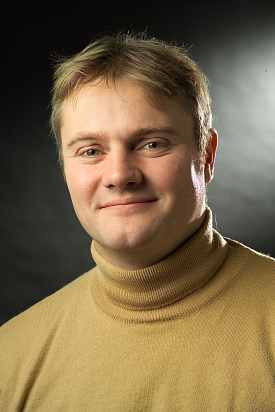|
6nd April 2008
|

Associate
professor Christian
Bjørnskov, Aarhus School of Business, Aarhus University
|
Studies from
Aarhus University show that people in countries and areas that are related to the Vikings are generally
happier and show more trust than their neighbours. For example, the level of trust is 50
per cent higher in the former Danish province of Slesvig-Holsten than
in the rest of western Germany. Slesvig-Holsten is also the happiest
region in all of Germany. An
upcoming research project at Aarhus School of Business, University of
Aarhus will examine, among other things, how the Vikings created the
breeding ground for the Scandinavian legal institutions.. “There
is something very special about the so-called Viking countries of
Denmark, Norway, Sweden and Iceland. No matter what figure we enter
into our models, the populations always come out more trusting and
happier than populations in other countries. It is highly likely that
this is linked to the social norms of the Vikings, which were based to
a greater extent on trust. It was a necessity in order for them to
maintain trade routes between Ribe and Edinburgh without an official
legal system to take care of those who broke mutual agreements,”
explains Christian Bjørnskov. “Two-thirds
of the Danish population feel that they can trust other people. That
is more than twice as many as in France, for instance, and our studies
show that trust helps make the Danish people happy,” says Associate
Professor Christian Bjørnskov from ASB who has carried out several of
the comprehensive studies. In
2008, researchers from the University of Aarhus and the University of
Southern Denmark will be initiating an interdisciplinary research
project, the objective of which is to find answers to, among other
things, the connection between the Viking society and the development
of the Danish trade and legal institutions, which are of significance
to the high happiness and trust rates of the Danes and other
Scandinavians. Professor
Gert Tinggaard Svendsen, from the Department of Political Science,
University of Aarhus, explains: “We
want to look at the Vikings as both warriors and merchants. Both roles
have been taken on by our ancestors with such success that it was
decisive in the early development of our society. For instance, as
warriors and local kings, they collected taxes to protect the
population from other Viking gangs. Consequently, over time it became
less attractive to be a roaming bandit, and this created enough peace
and predictability in the society to enable our trade and legal
institutions to begin to develop. In
addition to being a collaboration between Danish researchers and
several Scandinavian Viking experts, this new project is also a
continuation of the SoCap project, which is funded by, among others,
the World Bank. And
particularly the World Bank is very interested in the researchers
expanding their knowledge to also include countries like Africa and
South America. Many countries can benefit from a greater understanding
of what it takes to create a rich and happy society.
Contact:
Aarhus School of Business
University of Aarhus
Fuglesangs Allé 4
DK 8210 Aarhus
Denmark
Phone: (+45) 89 48 66 88
|